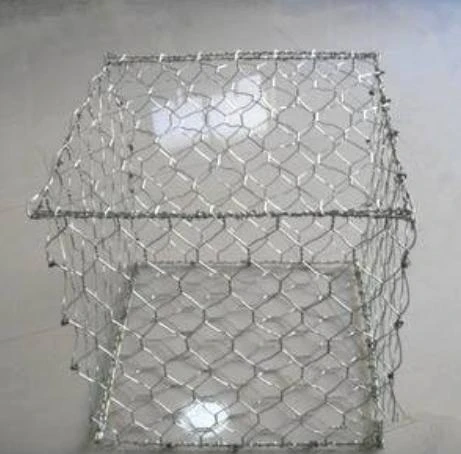
Nov . 06, 2024 10:26 Back to list
Struggling with Fencing The Challenge of Handling Barbed Wire
Pulling Barbed Wire A Practical Guide
Barbed wire, a staple in fencing and security, is as functional as it is ubiquitous. Used in agricultural settings, residential properties, and even in military installations, it serves the primary purpose of keeping livestock in and intruders out. However, the process of installing or repairing barbed wire requires attention to detail and understanding of proper techniques. In this article, we will explore the method of pulling barbed wire, covering the necessary tools, steps, and safety precautions to ensure a successful installation.
Understanding Barbed Wire
Barbed wire consists of twisted strands of wire featuring sharp metal barbs spaced evenly along its length. Its design is effective in preventing animals from crossing boundaries while deterring unwanted human intrusion. There are various gauges of barbed wire available, and the choice often depends on the intended application—thicker wires provide higher durability, while thinner gauges may be suitable for lighter use.
Tools Needed
To pull barbed wire efficiently, you will need the following tools
1. Barbed Wire Roll Ensure you have enough length for your fencing needs. 2. Wire Cutters For cutting wire to the desired length. 3. Staples and Hammer To secure the wire to posts. 4. Tensioning Tool or Come-Along For applying tension to the wire as it is pulled tight. 5. Fence Posts Typically wooden or metal, these will anchor the barbed wire. 6. Protective Gear Gloves and safety glasses to protect against sharp edges.
Steps to Pull Barbed Wire
1. Plan the Layout Before you begin, mark the locations of your fence posts to establish a straight line. This layout will guide the barbed wire installation, ensuring it is secure and effective.
2. Install Fence Posts Begin by placing the posts at determined intervals. The most common distance is between 8 to 10 feet, but this can vary based on the terrain and purpose. Ensure they are set deep enough in the ground to remain stable.
pulling barbed wire

3. Prepare the Barbed Wire Unroll the barbed wire carefully, ensuring that it does not tangle. It’s important to keep the barbs facing outward as you prepare for installation.
4. Attach the Wire Start by attaching one end of the barbed wire to the first fence post using staples. Ensure that the wire is aligned properly since any mistakes may require you to redo the entire section.
5. Begin Pulling Using a tensioning tool or come-along, start to pull the barbed wire toward the next post. Apply consistent tension, as a loosely hung wire can sag over time and lose its effectiveness. Be cautious while pulling, as the sharp barbs can pose a risk.
6. Secure the Wire Once the wire is taut, secure it to the next post with staples. Make sure to check for any slack or sagging and adjust if necessary. Repeat this process for the entire length of your fence.
7. Finishing Touches After the final post, cut the wire, ensuring you leave enough length to secure it properly. Tuck any sharp ends to avoid injury, and check the entire length of the fence for any loose areas that need tightening.
Safety Precautions
Working with barbed wire can be hazardous if proper safety precautions are not observed. Always wear gloves and protective glasses to prevent injuries from cuts and flying debris. Be mindful of your surroundings—ensure that children and pets are kept at a safe distance while you work. If you are unsure about certain aspects of the installation, consider enlisting the help of a professional.
Conclusion
Pulling and installing barbed wire can be a straightforward task when approached with the right tools, techniques, and safety measures. By following these steps meticulously, you can secure your property effectively while ensuring the longevity and durability of your fencing. Whether for creating boundaries, protecting livestock, or enhancing security, barbed wire remains a practical choice for many applications.
-
Why a Chain Link Fence is the Right Choice
NewsJul.09,2025
-
Upgrade Your Fencing with High-Quality Coated Chicken Wire
NewsJul.09,2025
-
The Power of Fence Post Spikes
NewsJul.09,2025
-
The Best Pet Enclosures for Every Need
NewsJul.09,2025
-
Secure Your Property with Premium Barbed Wire Solutions
NewsJul.09,2025
-
Enhance Your Construction Projects with Quality Gabion Boxes
NewsJul.09,2025
Products categories











